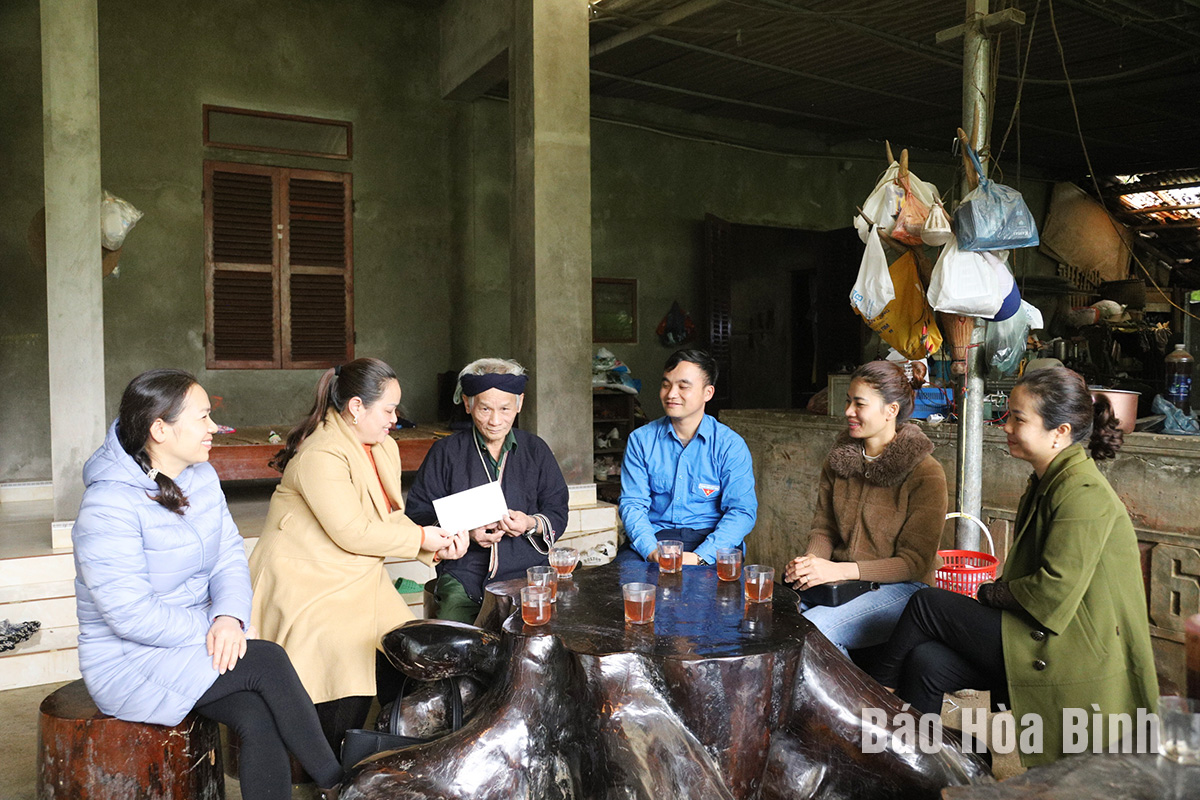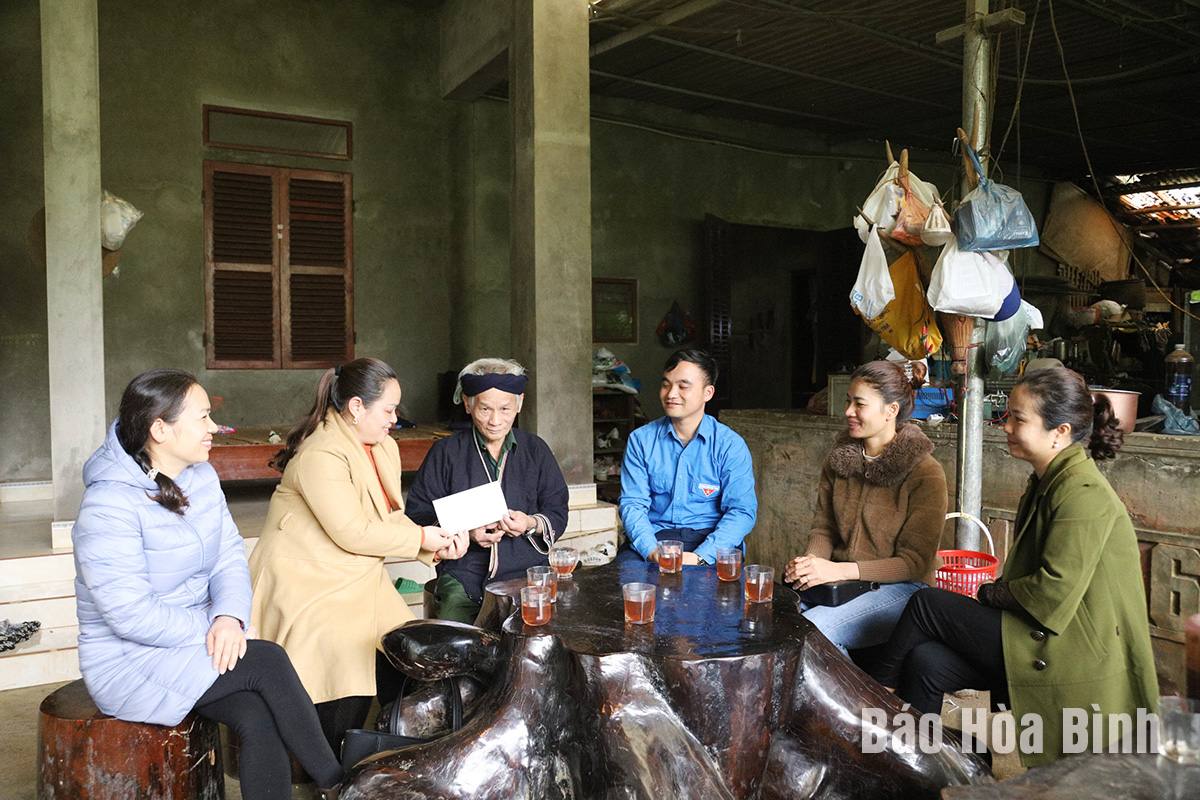
Toan Son commune in Da Bac district, with 70% of its population being ethnic minority people, has mobilised resources and created favourable conditions for local residents to access concessional loans to develop production. Thanks to the efforts, local livelihoods have seen positive changes.
Teachers from Toan Son kindergarten
present gifts to Dang Tien Dung’s household, a policy beneficiary family in Tra
hamlet.
Every year, when Tet nears, teachers from Toan
Son kindergarten bring a warm Tet to Dang Tien Dung’s household, a Dao ethnic
and policy beneficiary family in Tra hamlet.
According to principal of the kindergarten Ta
Thi Lam, the annual activity aims at joining hands with the local
administration to take care of the ethic people and those who rendered great
service to the nation. The gifts, small in value as they are, have encouraged
the families to overcome challenges and alleviate poverty.
Ban Van Huong, a prestigious Tra villager, said
thanks to the local Party organisation and administration's care, livelihoods
of the local ethnics have improved with average per capita income reaching 45
million VND (1,826 USD).
A wide range of agro-forestry economic models
have been developed while better roads have facilitated the sale of local farm
produce, he added.
Toan Son commune is now home to 688 families
with 2,600 people, with the Dao ethnics making up the lion's share of the local
population, mostly residing in Phu, Ranh and Tra hamlets.
Over the past time, the local Party organisation
and administration have carried out poverty reduction work and policies for
ethnic minority people, effectively implementing infrastructure development
projects and focusing on tackling local shortage of houses, land for production
and water.
Besides, they have implemented planning,
arranged settlement for local residents, and promoted the commune’s potential
and strengths to develop value chains for local products. Due attention has
been paid to developing sustainable agro-forestry economy in tandem with protecting
forests and improving locals’ income.
Statistics in 2022-2023 showed that more than
4.2 billion VND was mobilised for the national target programme on
socio-economic development in ethnic minority-inhabited and mountainous areas.
The capital was used to develop production, better local socio-economic
infrastructure, and ensure security, order and social safety.
Chairwoman of the communal People’s Committee
Dinh Thi Cuc said that the commune has been taking the care for the ethnic
minority people as an important mission, that’s why it has paid due regard to
building essential infrastructure, upgrading rural roads, supporting local
livelihoods through training and introduction of jobs to residents, and
carrying out support policies for the public servants who are responsible for
the ethnic work.
The commune resolves to improve the quality of
life of the ethnic minority people and promote sustainable poverty reduction,
contributing to realising the local socio-economic development missions, she
added.
The emulation movement "Hoa Binh joining hands to build new-style rural areas” has been widely spreading, becoming a driving force that motivates the localities to renew rural landscapes and improve the material and spiritual lives of the residents. In this movement, the people play a central role-both as the main implementers and direct beneficiaries of its outcomes.
In response to the global digital revolution, Hoa Binh Newspaper is transforming itself into a modern and multi-platform media hub, blending cutting-edge technology with a restructured newsroom and a new generation of tech-savvy journalists.
Hoa Binh province’s Association of the Elderly recently held a conference to review the project on expanding the inter-generation self-help club model until 2025.
In a move to implement Resolution No. 57-NQ/TW, issued on December 22, 2024 by the Politburo, which targets breakthroughs in science-technology development, innovation, and digital transformation, the Hoa Binh provincial Department of Health has issued a plan to roll out the "Digital Literacy for All” campaign within the local health sector.
An Nghia Commune (Lạc Sơn District) is one of the communes that achieved the tha standard of the national new rural area in 2018. Entering a new development phase, the commune is now trying to meet the criteria for the advanced new rural development. With the strong political will and the public consensus, the commune is gradually overcoming the challenges to reach this goal, aiming for the sustainable development.



